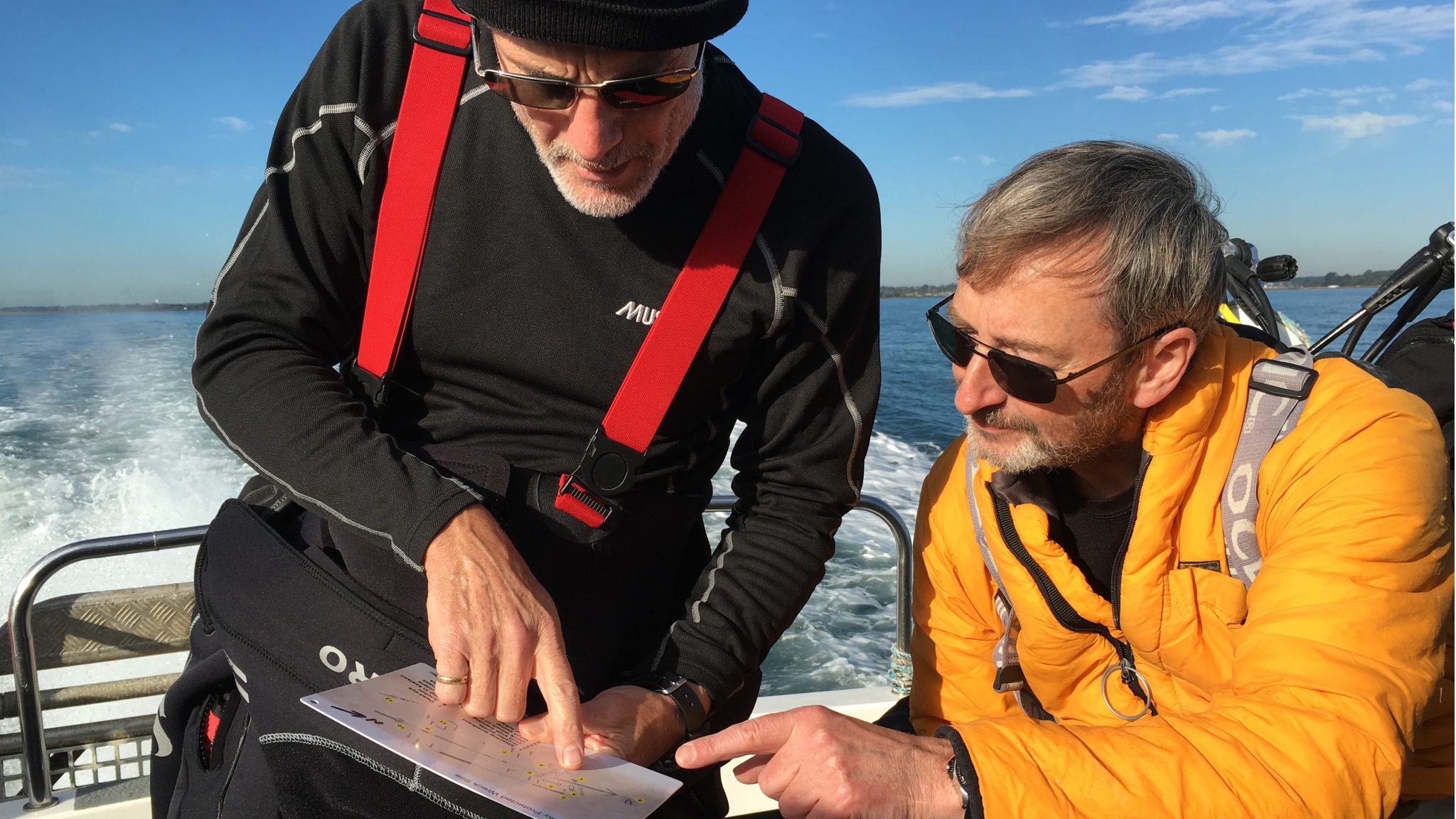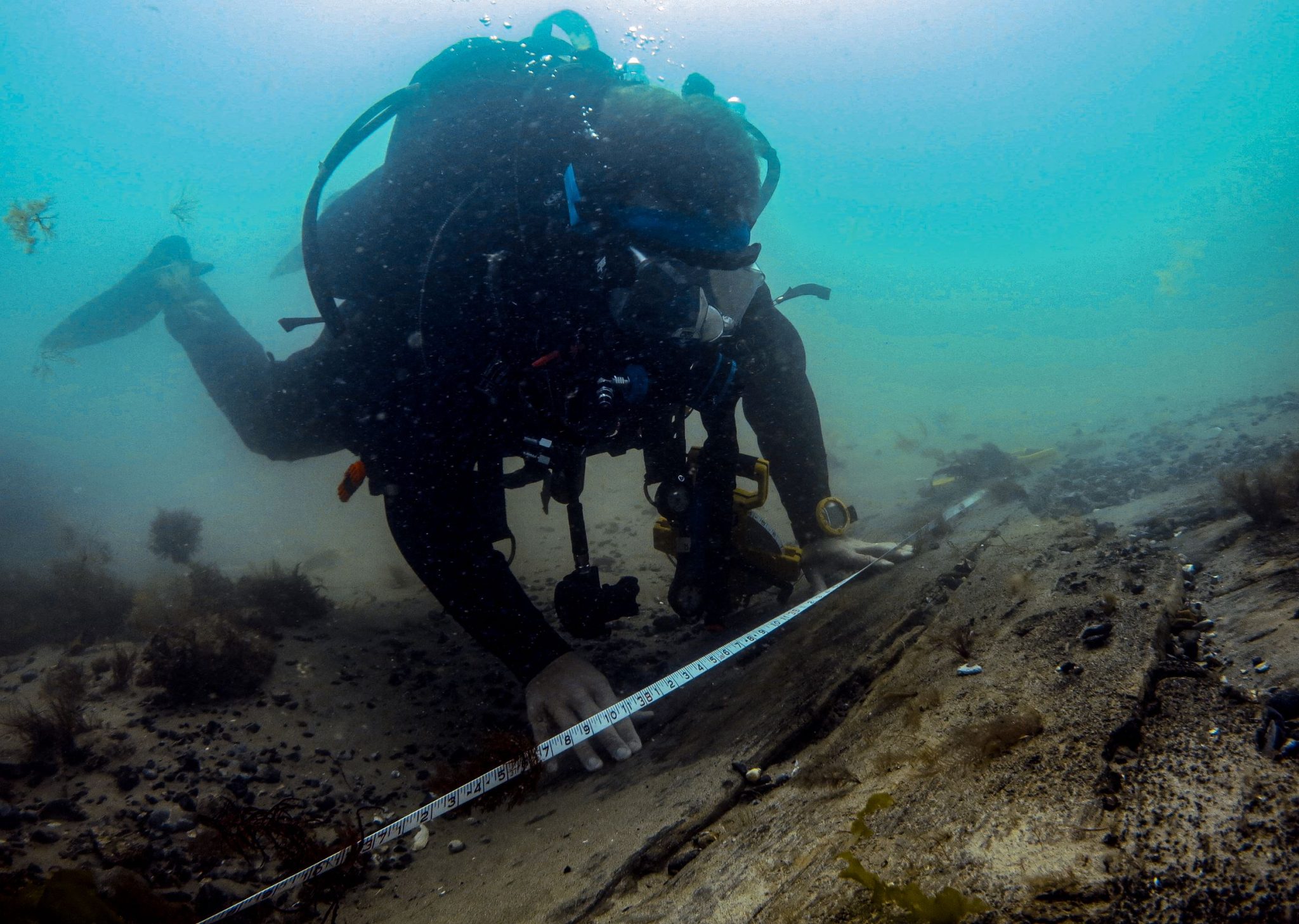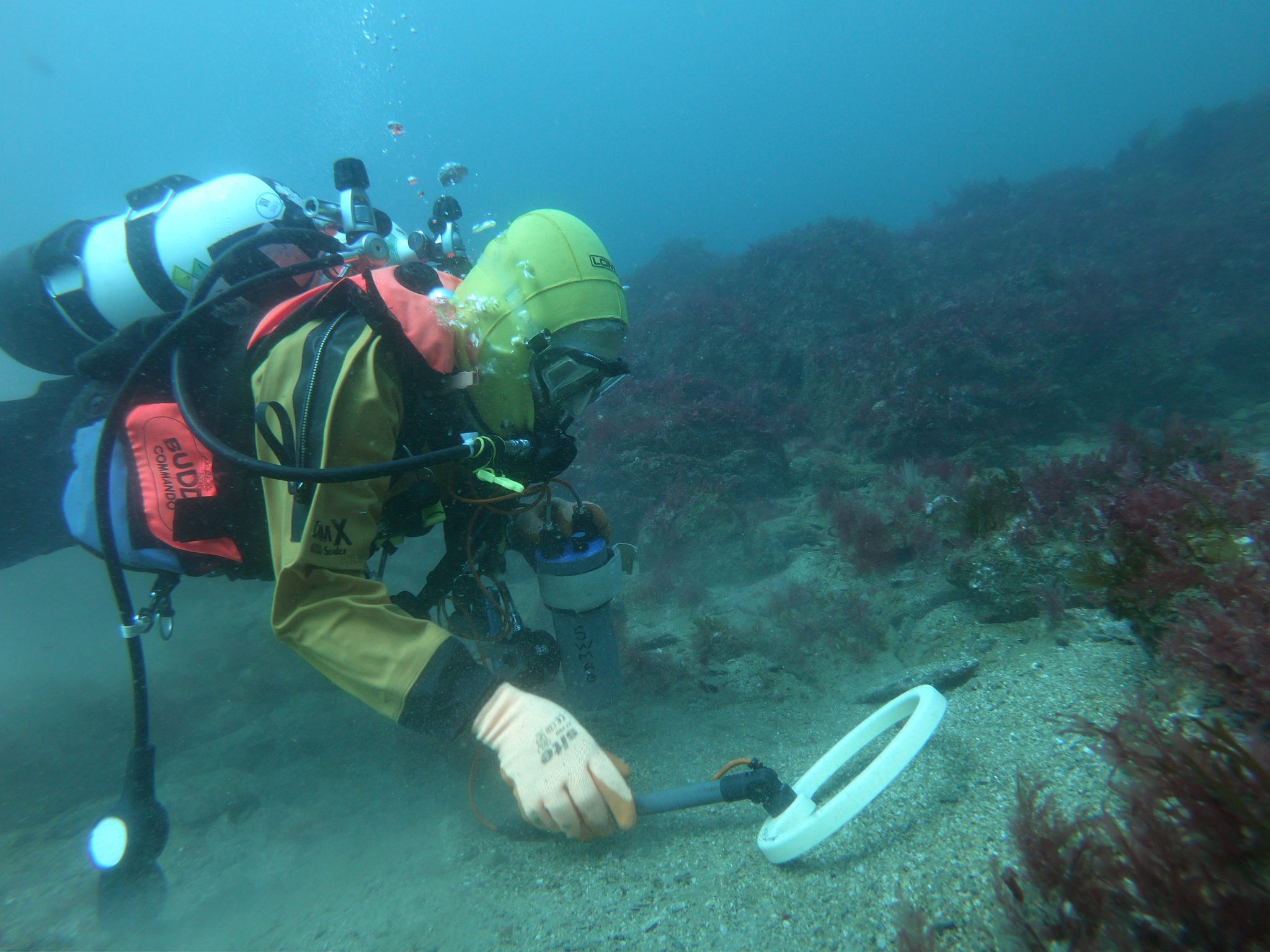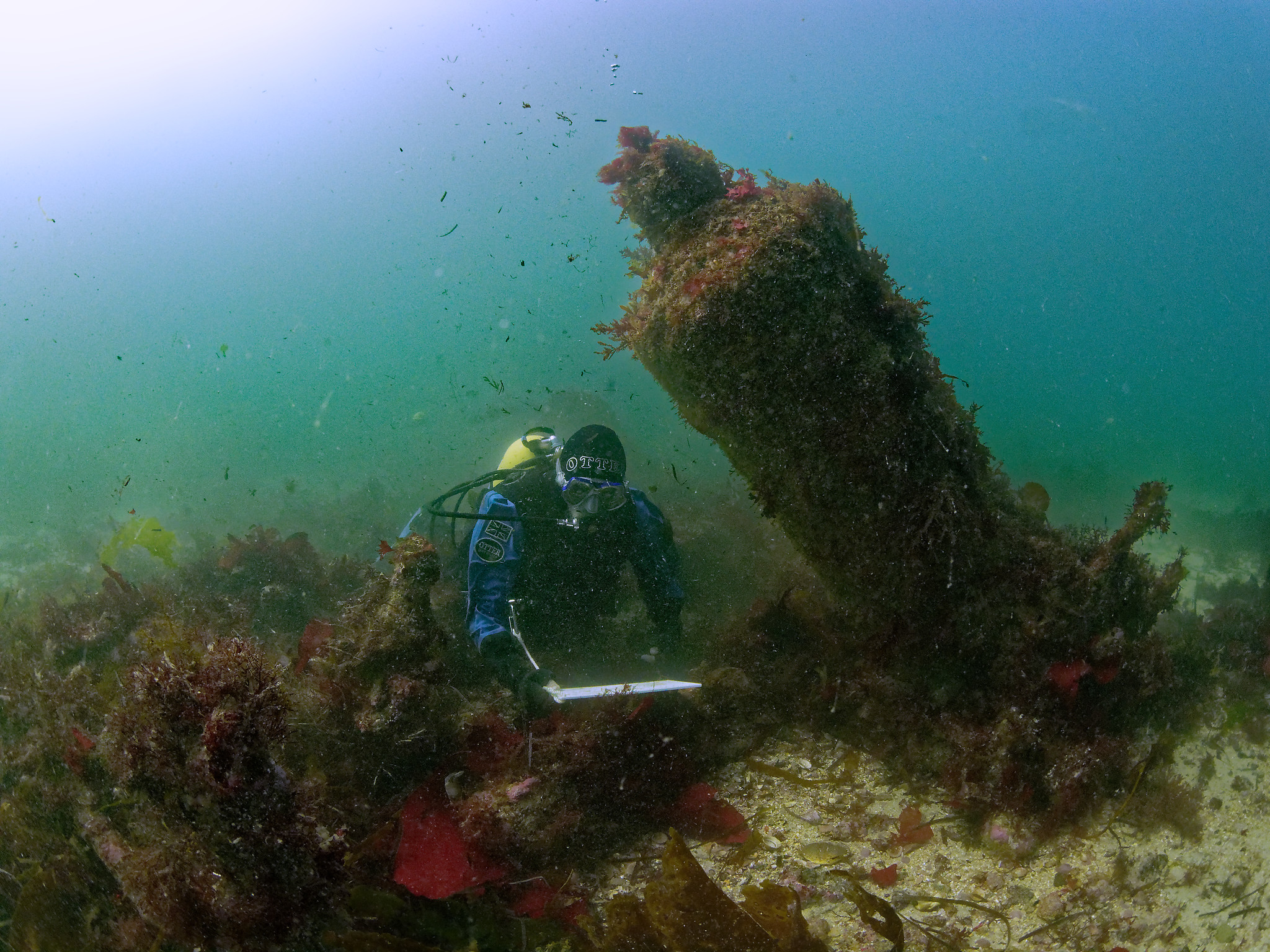News
Volunteer Divers make huge contribution to Marine Historic Environment

In the 50th year of the Protection of Wrecks Act 1973 a new survey by the Protected Wreck Association reveals the huge contribution volunteer divers make to the marine historic environment.
- 2023 is the 50th anniversary of the Protected Wreck Act 1973 and represents 50 years of divers acting as voluntary custodians on nationally and internationally significant wreck sites
- A new survey undertaken by the Association reveals in 2022 alone divers volunteered over 1,312 days working on protected wreck sites
- Volunteers contributed nearly £80,000 in 2022 to support the management of protected wreck sites
- The average volunteer is now over the age of 66 and new divers are urgently needed
Fifty years ago this year, a small piece of legislation was enacted that established, for the first time, the opportunity for Government to protect important historic shipwreck sites. There are currently 64 protected wreck sites across the UK designated under the Protection of Wrecks Act 1973, which is administered by DCMS and the Heritage Agencies. The Protection of Wreck Act 1973 enables the Secretary of State to designate a restricted area around a wreck to prevent uncontrolled interference. Shipwrecks can be designated under Section 1 of the Act on account of their historical, archaeological or artistic importance. The Act was introduced to address issues with the exploration and investigation of historic shipwrecks in the early 1970s that were damaging marine heritage and causing public outcry.
Licensing by the Heritage Agencies utilises volunteer divers as effective voluntary site custodians providing the eyes on the seabed to monitor, research and protect the wrecks. Some divers have been investigating sites over many decades; some 46% have been involved with the sites for fifteen years or more. The skills needed for investigating and caring for an important historic wreck site are broad and volunteers acquire a high level of responsibility, as they are ultimately responsible to DCMS. The volunteers work tirelessly on the protected sites, mainly funding their investigations themselves, to help bring these wrecks alive for the public on dry land for everybody’s benefit.
They are a unique breed of diver: focused, enthusiastic, committed and dedicated.
The role of the volunteer Licensee has played an essential vital part in the ongoing management of sites designated under the Act. In recent years there have been over 200 Licensees and team members active on England’s Protected Wreck sites, with more working elsewhere in the UK.
The Protected Wreck Association have undertaken a survey of its members to try and find out more about their volunteering. The survey has revealed that in 2022 alone, divers volunteered over 1,312 days to diving on, researching and engaging the public with protected wreck sites.
During their volunteering, they personally contributed nearly £80,000 to the management of protected wreck sites; this includes paying for boat time and fuel, purchase of survey equipment and travel to archives for research. 23% of survey participants are seeing a negative impact on their volunteering due to the cost-of-living crisis, with a further 40% anticipating it will have an impact in the near future.
The survey provides a snapshot of the value of the contribution of volunteers in just one year. It should be highlighted that the survey respondents represent only a small number of those who volunteer their time in such a way and the true figure is likely to be much higher. It can therefore be concluded that the value of 50 years of volunteering is highly significant and has helped underpin management of the UK’s most important maritime heritage throughout that time.
The work of Protected Wreck Association members helps reduce the number of historic wreck sites that are at risk and help heritage agencies, including Historic England and Cadw, in the management of these sites that are protected under the Protection of Wrecks Act 1973 or scheduled under the Ancient Monuments and Archaeological Areas Act 1979.
Professor Mike Williams, Chair of the Protected Wreck Association said: “Licensed diving teams are the unsung heroes of the UK’s underwater cultural heritage. Without fanfare, year after year, they go out investigating, recording and safeguarding the public’s maritime heritage. They are the embodiment of the adage ‘Take what you need, give more than you take.”
In England, Historic England recognise the huge contribution made by volunteer licensed divers in helping them to manage nationally significant wreck sites, such as the London that exploded and sank in the Thames estuary in 1665 and the Bronze Age and 17th Century sites in Salcombe, by classing them as affiliated volunteers
Hefin Meara, Marine Archaeologist at Historic England said: “The efforts of the protected wreck licensees are invaluable for the investigation and monitoring of these nationally important shipwreck sites. The results of the survey emphasise the significant contribution made by avocational divers to the care of our underwater cultural heritage. We look forward to continue our collaboration with the Protected Wreck Association, in order to support the vital projects undertaken by the Licensees”.
Gear News
Introducing the TR-80, IR-50 and CS-30 Regulators from DYNAMICNORD

Whether you are a beginner or a professional diver – with the three new main regulators from DYNAMICNORD, everyone will find their favourite regulator. They all look super stylish.
Excellent performance with the TR-80
Quality and performance are the be-all and end-all for regulators. It is not for nothing that the TR stands for Tec Reg. The innovative design of the TR-80 guarantees absolute reliability – even in ice-cold waters.

Perfect breathing effort at 0.8 J/l / certified for diving in waters below 10 degrees / structural design made of solid brass for best cold protection / membrane-compensated design with dry seal of the first stage / reduced exhalation effort thanks to optimized exhalation membrane and bubble deflector / adjustable Venturi (dive/predive) and adjustment knob for individual inhalation comfort / innovative design of the front cover prevents free-flow in strong currents or when diving with scooters / design made of sandblasted brass, matt chrome finish / 2 HP and 4 LP outlets / mouthpiece made of high-quality, anti-allergic silicone for maximum comfort.


Amazing underwater adventures with the IR-50
The IR-50 is the top regulator for advanced and experienced divers. Natural breathing is the essence of this regulator.

Ideal breathing effort at 0.8 J/l /certified for diving in waters below 10 degrees / compensated membrane / adjustable venturi (dive/predive) and adjustment knob for individual inhalation comfort/ outlet valve and deflector for minimum exhalation effort and reduction of bubbles on the face / design made of sandblasted brass, matt chrome finish / 2 HP and 4 NP outlets / mouthpiece made of high-quality, anti-allergic silicone for maximum comfort.


The Workhorse – our CS-30
For diving centres and diving beginners – the workhorse stands for strong construction, reliability and robustness. Perfect for your training.

Optimal breathing effort at 0.8 J/l /recommended for diving in waters above 10 degrees / non-compensated piston / adjustable venturi (dive/predive) / outlet valve and deflector for minimum exhalation effort and reduction of bubbles on the face / design made of sandblasted brass, matt chrome finish / 1 HP and 3 NP outlets / mouthpiece made of high-quality, anti-allergic silicone for maximum comfort.


Octopus OP-30
The OP-30 is the ideal addition to all DYNAMICNORD regulators. It is identical in construction to the CS-30.

The TR-80, IR-50, CS-30 (DIN & INT) regulators and the Octopus OP-30 are available from DYNAMICNORD dealers and in the online store.
DYNAMICNORD – Your Outdoor Companion.
Marine Life & Conservation
Paul Watson Released as Denmark Blocks Japan’s Extradition Bid

Renowned anti-whaling activist Paul Watson has been released from custody in Greenland after spending five months in detention. Denmark’s Justice Ministry rejected Japan’s request for his extradition, citing insufficient guarantees that his time already served in custody would be credited against any potential sentence.
The 74-year-old Canadian-American was arrested on July 21 in Nuuk, Greenland’s capital, when his ship docked to refuel. His arrest was based on a 2012 Japanese warrant related to a 2010 encounter in Antarctic waters. Japan alleged Watson obstructed operations and caused damage to a whaling research ship during efforts to disrupt illegal whaling. Watson has consistently denied these claims, maintaining his commitment to marine conservation.
Denmark, which oversees extradition matters for Greenland, concluded that while the legal conditions for extradition were met, the lack of assurances from Japan regarding time-served credit made extradition untenable.
In a video shared by his foundation, Watson expressed gratitude and relief, saying, “After five months, it’s good to be out… and good to know they’re not sending me to Japan.” He added that the most difficult part of his time in custody was being separated from his two young sons.
Watson is a pioneering figure in marine conservation, known for founding the Captain Paul Watson Foundation in 2022 after decades of activism with the Sea Shepherd Conservation Society. His bold efforts to defend marine life have earned him widespread support, including from celebrities and conservationists. His work has also been featured in the acclaimed reality TV series Whale Wars.
Watson’s lawyer, Jonas Christoffersen, praised the decision, stating, “We are happy and relieved that Paul Watson is now free.” He added that Watson is eager to reunite with his family and continue his vital work.
The arrest occurred while Watson’s vessel, the M/Y John Paul DeJoria, was en route to the North Pacific with a team of 26 volunteers to intercept a Japanese whaling ship. His foundation described the arrest as politically motivated and emphasized that Watson’s actions were focused on ending illegal whaling practices.
Japan resumed commercial whaling in 2019 after leaving the International Whaling Commission, asserting that whale meat is a cultural tradition. Conservationists, however, continue to challenge these practices, highlighting their impact on marine ecosystems.
Despite the challenges, Watson remains steadfast in his mission to protect marine life and bring attention to whaling practices. His dedication to ocean conservation has made him a globally respected advocate for the environment.
-

 News2 months ago
News2 months agoIconic SS United States to become the World’s Largest Artificial Reef
-

 News3 months ago
News3 months agoBook Review – 52 Assignments: Underwater Photography
-

 Gear News3 months ago
Gear News3 months agoDYNAMICNORD – New German diving brand enters the British market
-

 News3 months ago
News3 months agoExploring Cenote El Pit: A Diver’s Dream
-

 Gear News3 months ago
Gear News3 months agoTry BARE drysuits (and maybe even win one!) this Friday with Sea & Sea at North West Dive Fest
-

 Marine Life & Conservation3 months ago
Marine Life & Conservation3 months agoBook Review: Coral Triangle Cameos
-

 Blogs2 months ago
Blogs2 months agoDive the Egyptian Red Sea this Autumn with Regaldive
-

 News3 months ago
News3 months ago2024 Ocean Art Underwater Photo Competition Announced


















